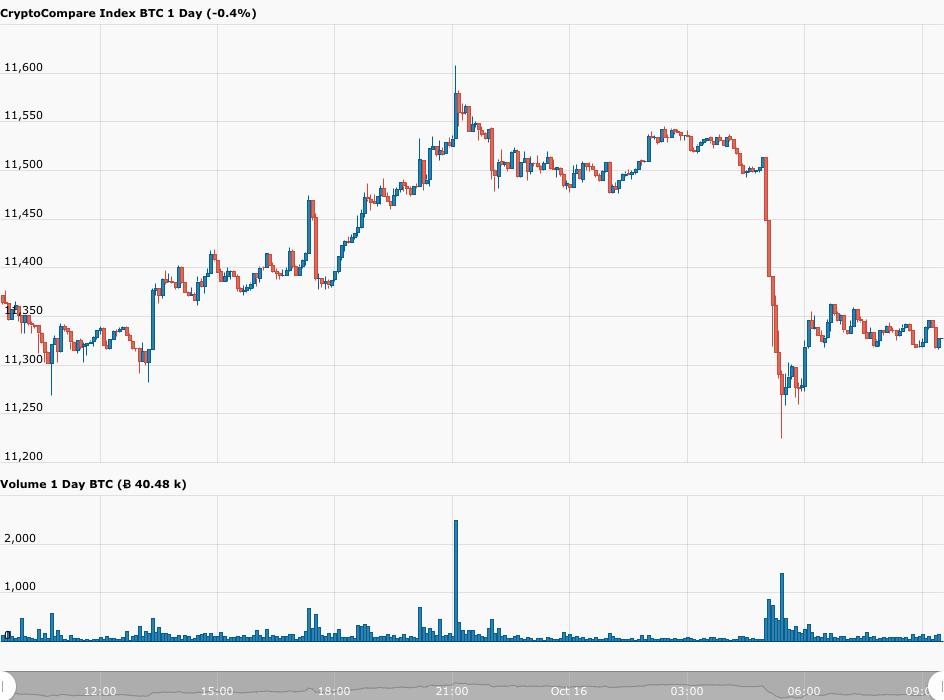On Friday (October 16), the worsening COVID-19 situation in both Europe and the U.S., along with continuing uncertainly of a fiscal stimulus deal before Election Day (November 3) in the U.S., are helping to prolong the risk-off mood in equity and stock markets.
As Euronews reported yesterday, “countries across Europe are seeing a resurgence in COVID-19 cases after successfully slowing outbreaks early in the year,” with the majority “declaring more cases each day now than they were during the first wave earlier this year.”
According to a report by the New York Times (NYT) published on Wednesday (October 14), “with an average of more than 100,000 new infections per day over the past week, Europe now accounts for about one-third of new cases reported worldwide.”
The NYT report went on to say that on Wednesday, Emmanuel Macron, the President of France, declared a state of emergency, and “imposed a curfew of 9 p.m. to 6 a.m. in the Paris region and eight other metropolitan areas, beginning on Saturday.”
Sadly, the COVID-19 situation in the U.S., also appears to be worsening. On Wednesday, according to Johns Hopkins University, nearly new COVID-19 cases (and 985 new fatalities as the result of COVID-19) were recorded.
As for the current state of COVID-19 fiscal stimulus talks in Washington, although yesterday there were helpful comments from U.S. President Donald Trump and U.S. Treasury Secretary Steven Mnuchin, his representative in the negotiations, it is clear by any means that House Speaker Nancy Pelosi, who is the lead negotiator for House Democrats, and/or Senate Majority Leader Mitch McConnell actually want to see a comprehensive COVID-19 relief package before next month’s presidential election.
According to a report by CNBC, yesterday, Mnuchin said during a phone interview with CNBC anchor Andrew Ross Sorkin that the issue of a national testing strategy for COVID-19, which the Democrats had identified as one of the points of contention, was getting “overblown”:
“That issue is getting overblown… We’ve agreed to $178 billion overall for health. It’s an extraordinary amount of money. We’d agreed with the Democrats with $75 billion going to testing, contact tracing….
“What we have been focused on is the language around testing… When I speak to Pelosi today, I’m going to tell her that we’re not going to let the testing issue stand in the way. We’ll fundamentally agree with their testing language subject to some minor issues. This issue is being overblown.”
As for President Trump, he said during an interview with Stuart Varney on Fox Business indicated that he is willing to agree to a relief package that is larger in value than the current $1.8 trillion package the White House has proposed.
When asked by Varney if the White House would be willing to go above $1.8 trillion (to get closer to the $2.2 trillion that Pelosi is asking for), Trump replied:
“I would. Absolutely, I would. I would say more. I would go higher. Go big or go home, I said it yesterday…
“Nancy Pelosi doesn’t want to give anything. She thinks it helps her with the election… And I don’t think so. I think it hurts her with the election because everyone knows she’s holding it up. We’re not holding it up. She’s holding it up.
“She’s got a lot of problems… She got a lot of mental problems. And it’s going to be very hard to do anything with her. She wants to wait till after the election.”
CNBC says that, later in the day, McConnell showed his displeasure with the White House’s idea of going above $1.8 trillion, saying that the Senate Republicans’s more limited in scope $500 billion proposal made more sense:
“My members think what we laid out – a half a trillion dollars, highly targeted – is the best way to go. So that’s what I’m going to put on the floor… It’s what Senate Republicans … feel like is an appropriate response.”
These two headwinds kept pressure yesterday on both equity and crypto markets.
In the U.S., three major stock market indices suffered losses for the third trading session in a row. The Dow Jones Industrial Average, the S&P 500, and the Nasdaq Composite, declined 0.07%, 0.15%, and 0.47% respectively.
As for the crypto markets, Bitcoin is currently (as of 08:30 UTC on October 16) trading around $11,326, down 0.35% in the past 24-hour period.

As you can see in the above 24-hour BTC-USD price chart from CryptoCompare, around 03:55 UTC on October 16, the Bitcoin price dropped from around $11,513 to $11,270 30 minutes later.
This drop was most likely due to the disclosure by crypto exchange OKEx that one of the key managers for its private keys was helping the authorities with their investigations and because he could not be reached, the exchange had to suspend all withdrawals until further notice:
The announcement posted on the OKEx website stated:
“One of our private key holders is currently cooperating with a public security bureau in investigations where required.
“We have been out of touch with the concerned private key holder. As such, the associated authorization could not be completed…
“In order to act in the best interests of customers and deliver exceptional longtime customer service, we have decided to suspend digital assets/cryptocurrencies withdrawals as of [October 16, 2020 at 11:00 (Hong Kong Time)]. We assure that OKEx’s other functions remain normal and stable and the security of your assets at OKEx will not affected.”
Featured Image by “SnapLaunch” via Pixabay.com
The views and opinions expressed by the author are for informational purposes only and do not constitute financial, investment, or other advice.









